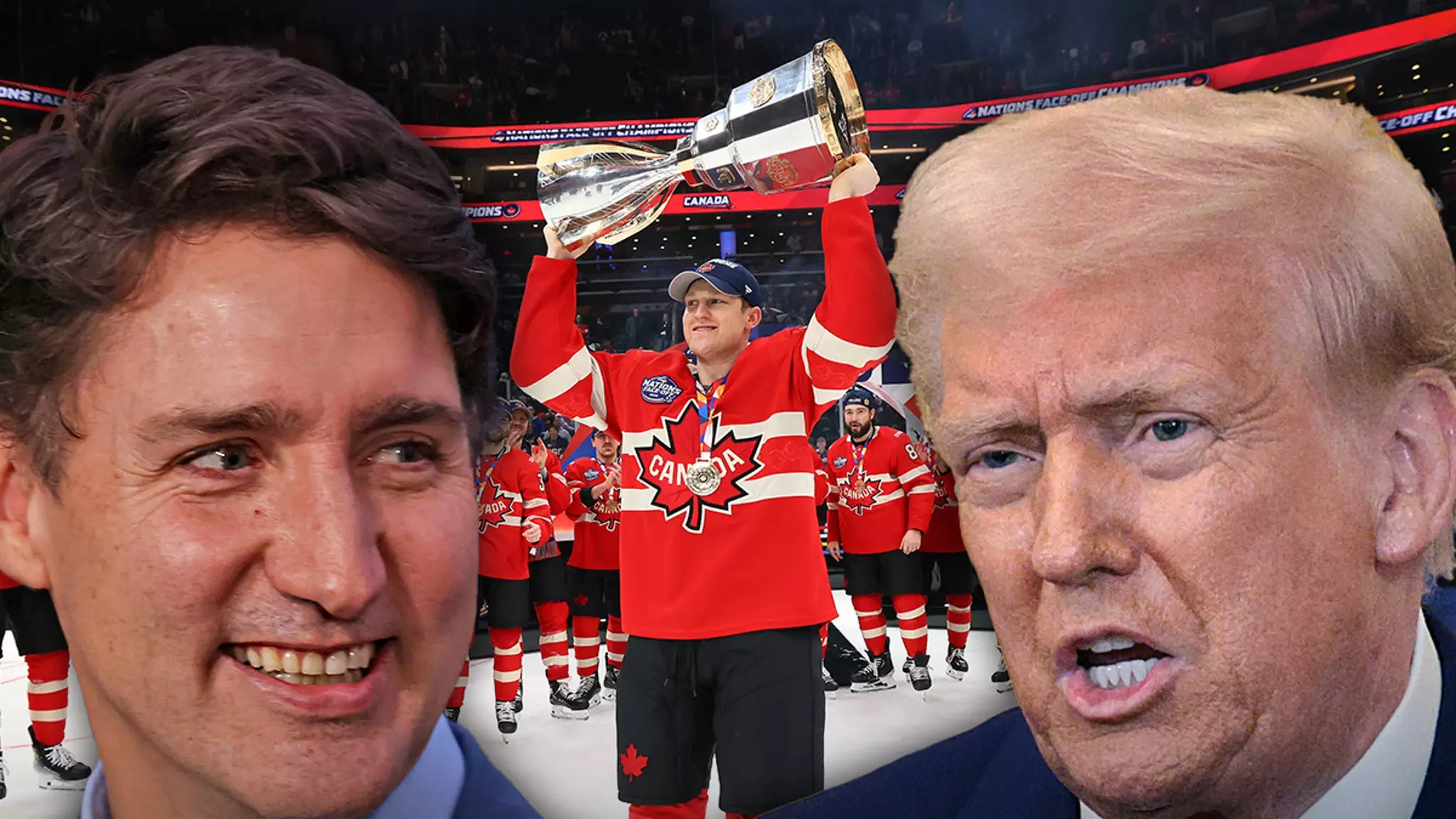On a night that combined high-octane athleticism with biting national pride, Canadian Prime Minister Justin Trudeau couldn’t resist the urge to publicly celebrate as his nation triumphed over the United States in the 2025 4 Nations Face-Off tournament. The recent match, which ended in a nail-biting overtime victory for Canada thanks to a goal from the famed Connor McDavid, transformed what was meant to be a simple showcase of hockey talent into a potent symbol of current political tensions between the two countries. The high-stakes nature of this matchup went far beyond the ice and served to amplify the existing rivalry, which has roots in historic conflicts both on and off the rink.
Trudeau’s choice to take to social media and taunt the United States post-game was as much a nod to the ongoing political barbs exchanged between the two nations as it was a celebration of sporting success. His comment— “You can’t take our country — and you can’t take our game” — was laden with implications of national sovereignty, harking back to former President Donald Trump’s threats regarding Canadian territory. As tensions rise globally, this situation epitomizes how sports can become a battleground for larger societal issues. The hockey rivalry transforms into an arena where national identity and pride are at stake, revealing how sports and politics are inextricably linked.
Viewer engagement during the tournament reflected this charged atmosphere. The games prompted boisterous displays of partisanship, with American and Canadian fans reciprocating jeers during the national anthems. This behavior speaks to a deeper sentiment of animosity prevalent among fans during this era of heightened nationalism. The physicality displayed during the games—a staggering three fights breaking out within mere seconds of the first face-off—indicates that the players were no less impacted by the political undercurrents off the ice.
Nathan MacKinnon’s post-game comments resonate with the sentiments shared by both teams. He noted that this rivalry has become a “perfect storm for our sport,” generating unexpected popularity amid the current socio-political climate. As the players prepare for future contests, particularly as they look toward the coming Winter Olympics, questions arise about how this rivalry might further evolve. Will the stakes continue to rise, infused with political meaning, or will competition return to a less charged atmosphere? One thing is clear: the United States will have to wait for its opportunity to retaliate, and that anticipation will only serve to intensify the experience for players and fans alike.
The 2025 4 Nations Face-Off, though merely a mid-NHL-season event, has turned into a multi-layered test not just of athletic skill but of national pride and identity. The intersection of sporting events with political narratives demonstrates how interests can converge in unexpected ways, leaving a lasting impact on the future of hockey between these two North American rivals. Whether this rivalry will foster healthy competition or become a breeding ground for bitterness remains to be seen; however, the significance of this tournament is unlikely to be forgotten anytime soon. As we look forward to future competitions, one must ponder what other messages may be expressed on the ice in the years to come.

